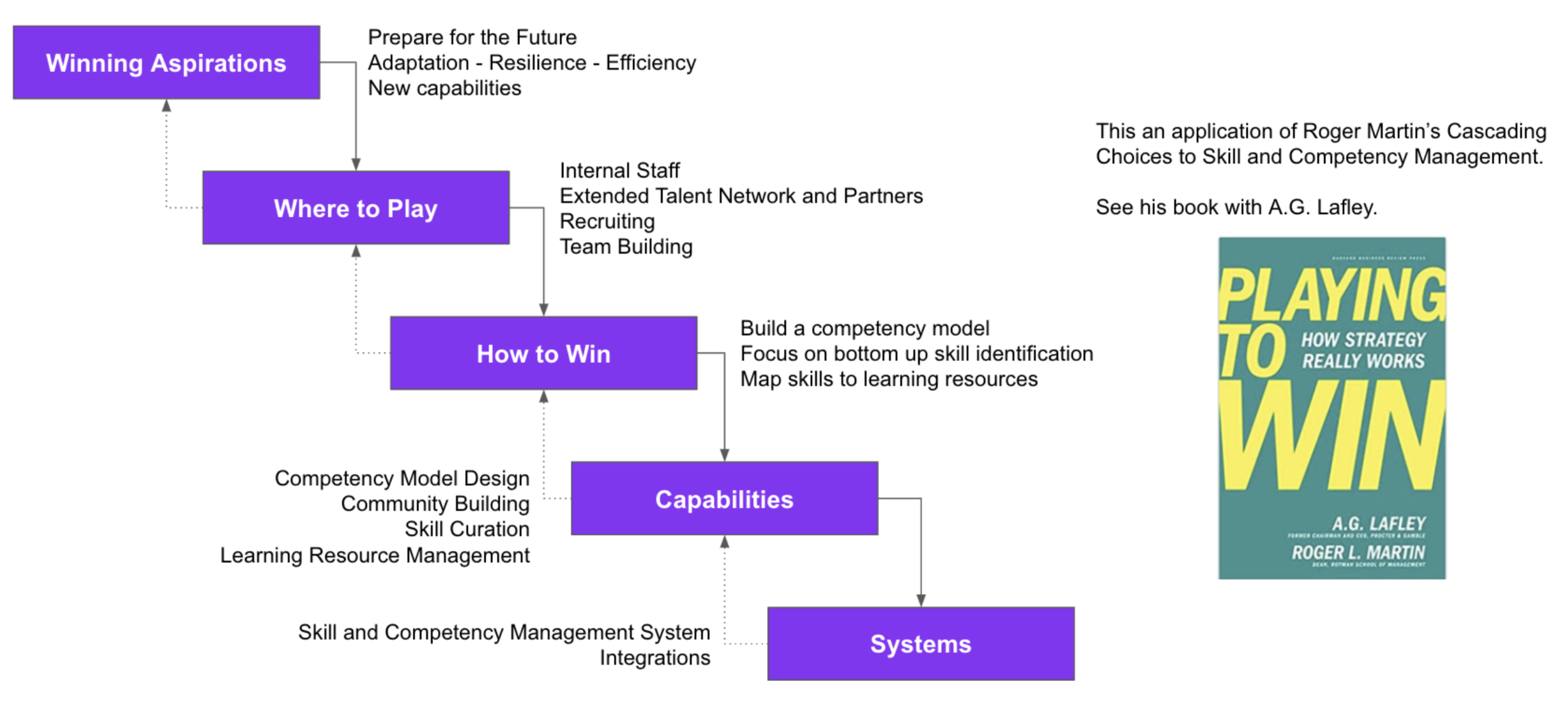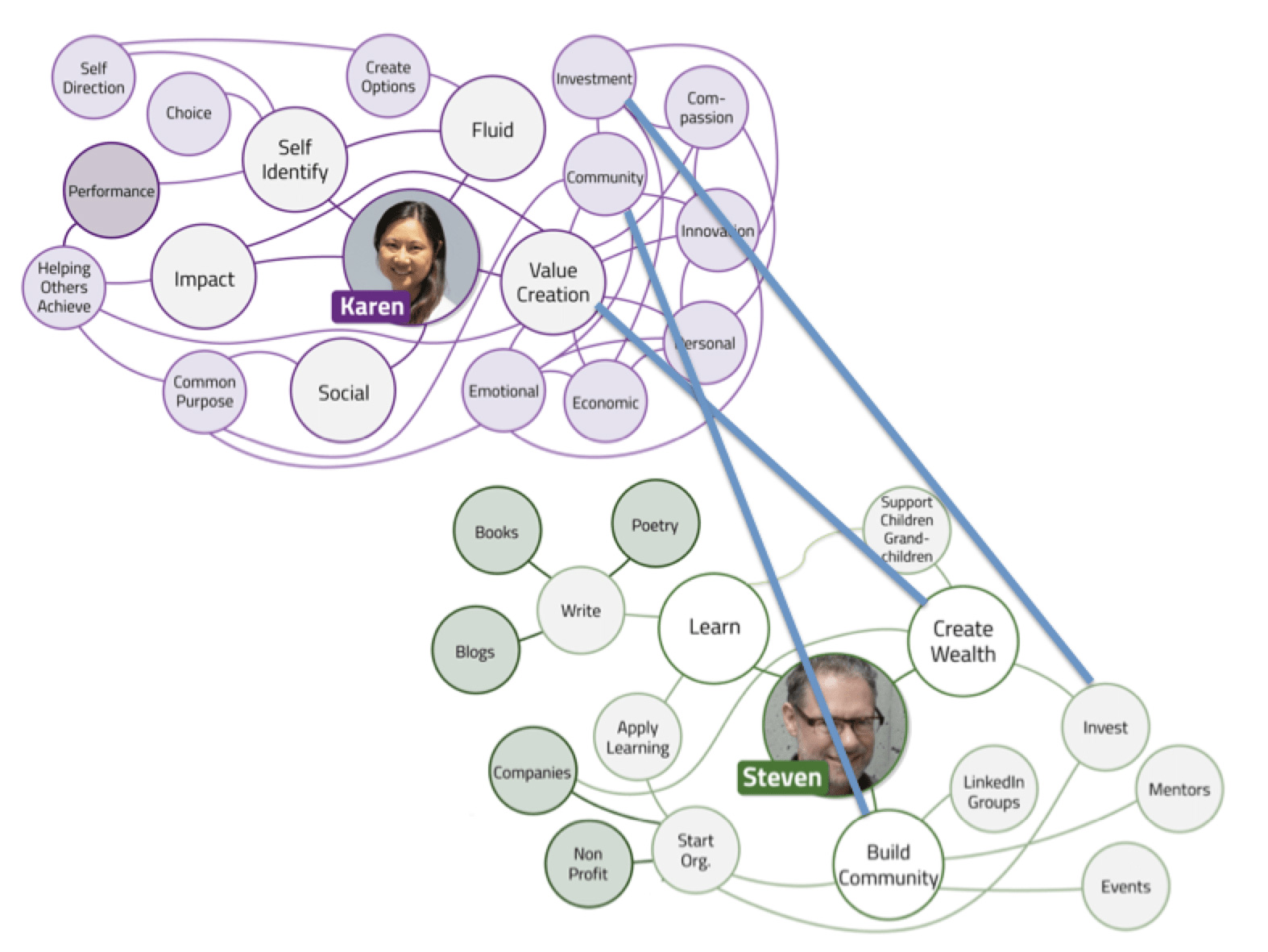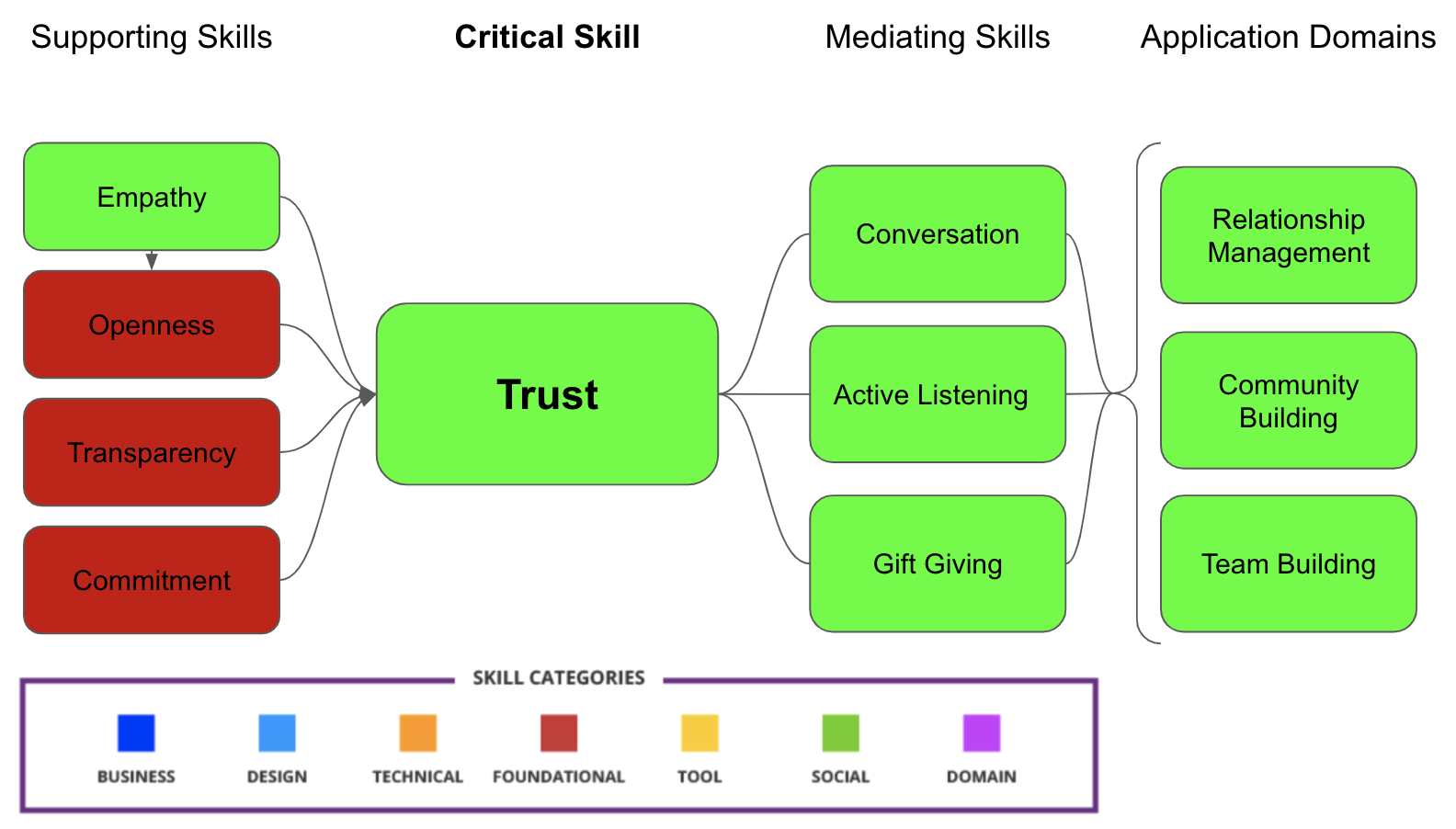Critical skills for the future of work - Is trust a skill?
Steven Forth is co-founder and managing partner at Ibbaka. See his skill profile here.
In uncertain times, beset with rapid and unpredictable change, many of us are trying to build resilience and adaptation into our organizations. This has come out in research we are doing on Critical Skills for the Future of Work and Scenarios for the Future of Work. You can help us contribute to the global skill management community by taking these surveys and sharing them with your networks.
Please contribute to the survey Critical Skills for the Future of Work
Please share your insights into Scenarios for the Future of Work
One ‘skill’ that is coming up in both of these surveys is trust.
Trust. Is trust even a skill? Is it something that is learned and can be fostered? If so, where does it fit in the skill graph and what can we do to cultivate trust in our relationships, our teams and for our organizations?
At present, I am taking a course on Designing Strategy with the global design firm IDEO. The course was developed by Roger Martin and Jennifer Riel. These two people have been important to our work at Ibbaka. Roger Martin developed the cascading choice framework, which we use to frame our own strategic thinking and with our clients and users.
In Roger’s book with Jennifer Riel, Creating Great Choices; A Leader’s Guide to Integrative Thinking, they introduced the idea of creating a Mind Map of your career goals. This is something that everyone at Ibbaka now does, and we plan to integrate this into our approach to career paths. It requires trust to discuss your real career goals with your colleagues, especially when some of those goals will naturally take you beyond the team or put you in competition with others. Karen Chiang and I have taken time to map our career goals with each other. Doing this work, we found not only required trust, but that helped us to build trust with each other. This trust has made our relationship more resilient.
The case study I am working on in the Designing Strategy course involves a financial institution that wants to build its business with Small and Medium Businesses (SMBs). As I worked on this over the past few weeks, I began to think that what is critical to this strategy is in fact trust. The institution needs to have the SMBs trust them, but in order to do this, it needs to show that this trust is shared. One cannot really expect trust if you are not willing to give it. Trust is strongest when it is based on a reciprocal relationship.
This insight, which is becoming a conviction, helped me think about trust as a skill. We learn to trust other people and to have them trust us. How do we do this?
To be trustworthy, others need to see our actions as consistent and predictable, and to have assurance that when we make commitments we will stick to them, even when it is difficult to do so. Commitment, Openness and Transparency are critical to trust. Going back to the case study for my course, financial institutions are generally good at keeping commitments. They are legally required to do so. Many do not do so well on openness and transparency. Do you think your bank trusts you? Transparency, in this context, turns on what commitments have been made, including commitments to other people. To build trust we need to be transparent about our commitments. Openness is a willingness to listen to others and consider their views. It relies a great deal on empathy. This dance of openness, transparency and commitment are what build trust.
Trust is not something you can simply claim. If you accept that trust is strongest when it is reciprocated then it is mediated through other skills like conversation, active listening and gift giving. Gift giving!
Most of our social relationships are mediated through gifts, small and large. This is most visible in societies like Japan, where virtually all relationships are realized through ritualized gifts, on returning from a trip, at transitions of the seasons, for life events, and as simple acts of appreciation. For most of us gift giving is less formal, but it is just as important. Paying attention to a person is a kind of gift. Listening carefully to what they say is a kind of gift. Giving and receiving gifts is an important way to build trust. Trust is won when it is freely given.
Do you think of trust as a skill? If yes, then what do you do to help others trust you and to learn how to trust other people?
Share your ideas on the critical skills for the future of work. Three minute survey.
What are the critical skills for the future of work?
Below are a list of skills we have explored in depth to date.
Connections - Foundational
Conversation - Social
Critical Thinking - Foundational
Empathy - Social
Learning - Foundational
Play - Foundational
Problem Solving - Foundational
Reflection - Foundational
Sketching - Foundational
For some context on our work on critical skills see What are the critical skills for the future of work?
Note that Ibbaka’s default skill categories are as follows:
Foundational - the skills used to build other skills
Social - the skills used to work with other people
Business (Organizational) - skills used to conduct business and operate an organization
Technical - the classic STEM skills (Science, Technology, Engineering and (Applied) Math)
Design - skills used in developing new design and solutions
Tool - the actual tools used to carry out Business, Technical and Design work
Domain - broad areas of knowledge and culture
Where do I learn more about critical skills?
Here are some critical skills we are exploring:
Abstraction - Foundational
Adaptation - Foundational
Choice Making - Foundational
Coaching - Social
Community Curation - Social
Inference - Foundational
Observational Learning - Foundational
Resilience - Foundational
Sense Making - Foundational
Writing - Foundational
Want us to cover a skill that is not on the list? Join us for a conversation about the critical skills we will all need to adapt to the future of work.
Ibbaka posts on critical skills
Critical Skills for 2022 - First Impressions of Survey Results
Critical Skills - Generative Thinking (Interview with GK VanPatter)
Critical Skills for the Future of Work - Is Trust a Skill? (this post)
Critical Skills for the Future of Work - Managing Trade Offs
Critical Skills for the Future of Work - What are the Critical Skills?





